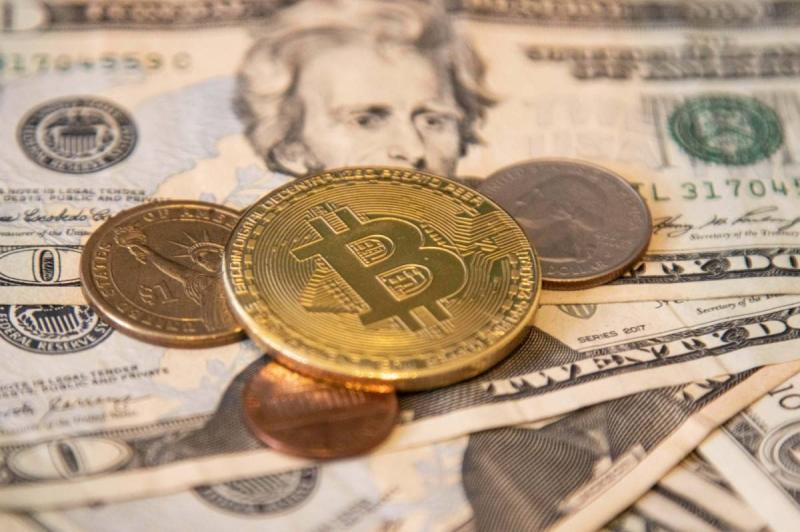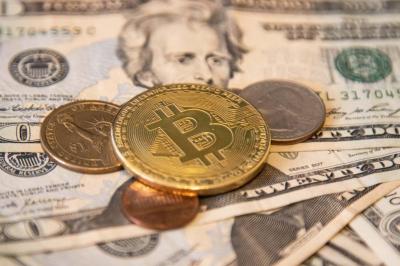The price of Bitcoin rises one minute and falls the next. At first, Elon Musk is in love with it, only to later become unsure of his feelings. Some countries adopt Bitcoin as legal tender, while others harbor serious doubts about it. A Wild Journey
Bitcoin underwent a wild journey in 2021, with the cryptocurrency's price climbing from around $30,000 in January to a peak exceeding $63,000 in April. Then, in June, it fell to below $30,000. Now, the price of Bitcoin has risen about 14% this year. In comparison, the S&P 500 index achieved returns of approximately 18%. The decline has triggered a recurring phenomenon: betting on assets during price drops. So, you might think this is the right time to enter this market.
But how? If you are new to the Bitcoin market, it may seem that there is no clear starting point. Your brokerage might not even offer this option yet. However, we can provide you with all the updated information you need to enter this field.
Difficulty in Understanding
Cryptocurrencies are known for their complexity, so don't be embarrassed if you want to ask about them. A survey conducted by Harris earlier this year showed that 61% of people who heard of cryptocurrencies still understand little about them or don't know anything at all about how they work. Additionally, although the internet is filled with information about cryptocurrencies, often conflicting and hard to verify, this remains unhelpful.
Every time Dan Heron typed "how to invest in Bitcoin" into Google, he received "10 million sources with no official information." This piqued the interest of the financial advisor at Elemental Wealth Advisors, based in San Luis Obispo, California, as he wanted to learn more about cryptocurrency for his millennial clients, and of course, he was monitoring the asset's price surge last year. After attending a two-day Bitcoin conference, he came out with more questions than answers and felt that having a culture around cryptocurrency could be "pretty great."
Subsequently, Heron founded Coinbase, the largest digital currency exchange in the U.S. and increasingly the most favored way for individual investors to buy Bitcoin in many countries.
A Decline After Popularity
Coinbase went public on April 14, which was also the day Bitcoin reached its all-time high of nearly $64,870. The direct listing of Coinbase was seen as a sign that cryptocurrency had become the most popular investment. After all, the exchange would turn into a public company, subject to intense regulatory oversight, and providing audit reports just like traditional large companies.
Since then, both Bitcoin's price and Coinbase's stock price have declined. It is not the only exchange in the country; other major exchanges include Kraken, Bittrex, and Binance, the largest instant cryptocurrency exchange in the world by trading volume.
Bitcoin's Long-Term Investment Case
Some, including Heron, see Bitcoin as part of a broader investment strategy, especially for young investors who have a time horizon of 25 to 30 years, as well as a tendency towards digital finance.
Heron does not recommend rushing to allocate emergency savings, especially in cryptocurrency. However, he views it as part of a comprehensive mix that could "raise your returns a bit" in today's low-interest-rate environment. He said, "You might think about investing in cryptocurrency if you have the capability to allocate 5% of your investment portfolio to it, then let it rise and see what happens next."
Teresa Morrison, founder and partner at Beckett Collective, a financial consulting firm based in Tucson, views cryptocurrency as an investment for the future. She feels that, "as the native currency of the internet," it could work well as a hedge against inflation if clients hold small amounts, like around 1% of their investment portfolios.
Concerns Over Volatility
Dana Minard, founder and CEO of Twin Cities Wealth Strategies, is optimistic about the currency's performance but has regulatory concerns. He referred to the U.S. Securities and Exchange Commission, stating, "Without SEC approval, the complex issue for Bitcoin is its lack of oversight and speculation in the American West, which has caused prices to make significant moves over short periods."
Moreover, Minard urges caution when seeking advice about Bitcoin online. He states, "It is unregulated, so anyone and everyone can provide advice about it," and not everyone will consider your best interests when responding.
Mike Caligiuri, founder and CEO of Caligiuri Financial in New Albany, Ohio, said, "To me, it seems like fool's gold." The fee-only financial planner is mainly concerned about the currency's volatility, adding, "It is a relatively unproven asset class."
For this reason, Caligiuri denounces the common claim touted by Bitcoin proponents that it can serve as a useful hedging asset in an investment portfolio; because it is uncorrelated to the performance of stock markets, bonds, or commodities. He added, "Investors don't just want uncorrelated assets in their portfolios. They want a combination of uncorrelated assets and others they are reasonably confident will increase in value over time."
Basics of Buying Bitcoin: What Are You Really Buying?
It is not a physical currency; "it's literally just a number," according to Carsten Sørensen, an associate professor at the London School of Economics, who leads a course on cryptocurrencies. Depending on how much you want to spend, you can buy one Bitcoin, ten, or part of a Bitcoin. According to the foundational protocol of the currency, only 21 million units will ever be mined.
Since Bitcoin can be divided into eight decimal parts, you can buy small fractions of the whole. So, if you bought $100 worth of cryptocurrency when it was trading around $19,000, you'd get approximately 0.0053 of a Bitcoin.
You've Heard About Bitcoin Wallets... Do I Need One?
Yes and no. If you are using certain brokers like the Robinhood app, you can buy without setting up your own wallet, as Robinhood holds custody of the coins. However, if you want to buy Bitcoin yourself, you will need to have a wallet.
In general, you could say that the wallet is the home where your Bitcoin lives. Wallets, as the name suggests, are places to store coins, but for Bitcoin, they are only virtual. Among the most popular wallets are Blockchain.com, Exodus, Electrum, and Mycelium. You can access these wallets on your phone or computer. But if you lose your access keys, you could lose access to your assets.
As for hardware wallets, they are places where your Bitcoin is stored and completely disconnected from the internet, adding an extra layer of protection from hackers. The good news here is that many wallets can be opened for free, and you can pay a small fee to transfer Bitcoin in or out of the wallet.
Also, if you've read about Bitcoin, you're likely aware that it is known for its anonymity, and wallets allow for that, as you need a wallet to transfer Bitcoin but are not required to link your name or phone number to many wallets.
How Can I Buy Bitcoin?
As mentioned above, your most likely destination would be Bitcoin exchanges (yes, you may have seen personal vending machines for Bitcoin, but those are mostly novelties).
You will create an account and enter a payment method. In reputable exchanges, you will be asked for information such as your bank account details or debit or credit card. You will then need to verify your identity with a driver’s license, ID card, or passport. After your identity is verified, you can start buying Bitcoin using your chosen payment method and transfer it to your personal wallet while monitoring it closely as its price fluctuates.
Can I Buy Things with My Bitcoin?
Certainly. Some vendors have started accepting Bitcoin as a payment method. This ranges from small shops to a Swiss ski resort. However, most people do not actually use Bitcoin to buy things; instead, they use it as an investment or as a store of value, similar to how people buy gold, but they don’t really use it for everyday purchases.
Some skeptics doubt the cryptocurrency's ability to become a global currency anytime soon. However, Bitcoin as a payment method received a boost last year when PayPal Holdings announced in October that it would allow customers to use it and other virtual currencies to shop at 26 million merchants on its network. Earlier this year, Elon Musk stated that Tesla would allow transactions using Bitcoin, only to retract his stance due to environmental concerns. He later changed his mind again, stipulating that the coins must be mined using cleaner energy.
What About Bitcoin Funds?
Bitcoin funds are still relatively out of reach for most ordinary investors. It is rumored that JPMorgan Chase is preparing to offer a Bitcoin fund to wealthy clients, which could be ready as early as this summer.
Last summer, Fidelity announced the launch of its first Bitcoin mutual fund. The investment entity, which is passively managed and specialized in Bitcoin, will only be available for qualified buyers through family offices, registered investment advisors, and other institutions, according to someone familiar with the matter. Fidelity Digital Assets will maintain custody of the fund, and the minimum investment will be $100,000.
This means that these types of funds might not be suitable for most people, as confirmed by Minard from Twin Cities Wealth. Bitcoin is generally expected to make up a small part of most investment portfolios. Minard said, "If the minimum investment for the fund is $100,000 and the maximum you want to allocate to it in your portfolio is 5%, then you’d better have a substantial fortune."
Additionally, Bitcoin derivatives have come under scrutiny this year. In October, U.S. prosecutors charged the founders of BitMEX, a cryptocurrency derivatives exchange in Hong Kong, with failing to prevent bad actors from using the platform for money laundering. Starting next January, the sale of cryptocurrency derivatives to retail investors will be banned in the UK.




